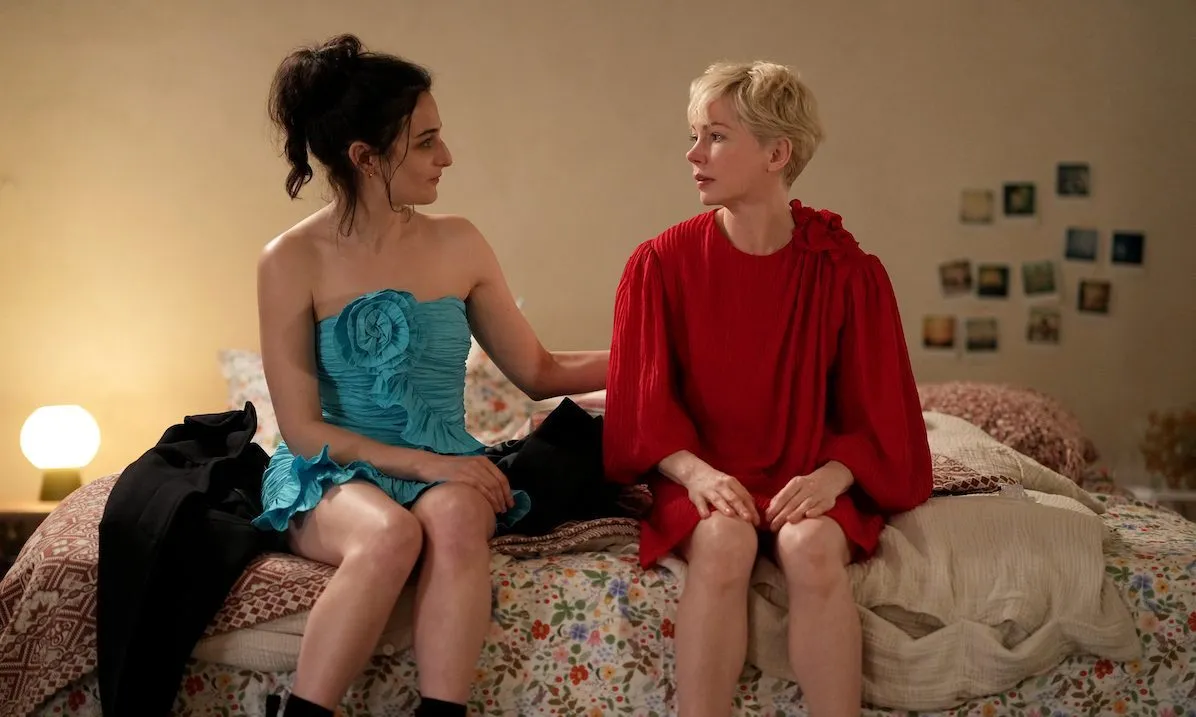

This week, I watched Dying for Sex. I knew I had/wanted to write about it; its excellence was obvious. But when something is good, really good, impressively, specially, divinely good, it’s harder to decide where to start. It’s much easier to find flaws in a piece of work and spend one’s allotted 500 words in a negotiation with said flaws and their creators. Much of television is entertaining, even as the definition of “entertained” ebbs and flows. Some of it is clever, some of it moving, some existential, and sometimes, when we are lucky and studios are smart, a piece of television is all three.
This is how I felt about The Pitt, and that is how I feel about Dying for Sex. The premise of Dying for Sex is: Molly (played by Michelle Williams) is diagnosed with stage 4 cancer and ends her marriage to embark on a mission of having gratifying sex before she dies. The show was created by Kim Rosenstock and and Elizabeth Meriwether, the latter to whom millennials owe much for creating New Girl. The show is based on a podcast by the real Molly Kochan and Nikki Boyer, which documented Molly's experiences before she died. I once watched a funeral on Zoom in which a mourner recounted standing in a line with the now-deceased after a play and hearing a woman behind them say something along the lines of, “I liked that play. It was how I like my plays — funny and sad. Funny and sad.”
This, if I remember correctly, became somewhat of an inside joke between the two eavesdroppers from that day forward. And Dying for Sex is wonderful because the grief stuff is funny and the funny stuff makes you sad. The catharsis is welcome. Part of why Dying for Sex was satisfying was that it felt good to be sad, rather than choke down confectionary in an attempt to mask daily bitterness. The Pitt or Dying for Sex are not necessarily distractions, and they—obviously—aren’t a solution to our larger conflicts, but for myself they served as vessels to process some of this atmospheric grief. The opposite of the month of March, the show creeps in like a lamb, out like a lion. Every year, every awards season, people begin to split hairs about the award titles. (Awarding different performances is a fool’s game anyway, as very few parts can be considered exactly equal roles, and the contexts for all performances are different.) I saw some discourse about Jenny Slate being put in the role of “Supporting Actress,” when she is an obvious equal lead, but one can surmise this was a tactical move so that both actresses could win major awards. Rob Delaney, however, should win an Emmy for being Most Up for It Guy. His character (Neighbor Guy) never gets a first name, but … there are no small actors… There’s much more I could say about the show but I won’t because you are all going to see it. Watch it, and tell me what you think.